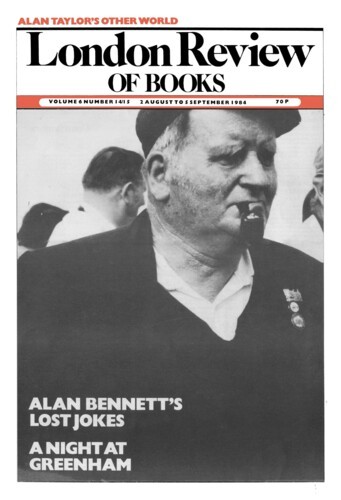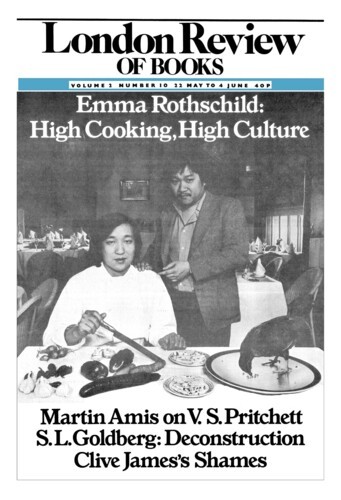What can be done
Leo Pliatzky, 2 August 1984
The 1983-84 series of Reith Lectures was given by Sir Douglas Wass, who retired from the Civil Service in March 1983. He had served in the Treasury since 1946, and had been Permanent Secretary to the Treasury since 1974. The task which he set himself in the lectures was to examine the efficiency and responsiveness of central government in Britain. Knowing that it can be quite hard to find anything weighty enough to put into a single memorial lecture, my first reaction was to wonder whether there are enough subjects of general interest, and a sufficient supply of people with something new and important to say about them, to warrant a whole series of broadcast lectures every year. BBC Television has, each year, a single Dimbleby Lecture. It was one of these which Roy Jenkins used to put forward the ideas which led to the creation of the Social Democratic Party and the SDP-Liberal Alliance. One cannot imagine his lecture being spread over six broadcasts. The effect of doing so would have been to reduce, not enhance, the impact. However, the Reith Lectures have certainly acquired a following, and in a fair number of cases the book of the broadcasts has had a substantial sale. Douglas Wass sustained an audience estimated at 250,000 for each broadcast on Radio 4 and 150,000 for each repeat on Radio 3, with an unknown number of further listeners on the Overseas Service. His reasoned approach and fluent, non-academic prose went down well.


